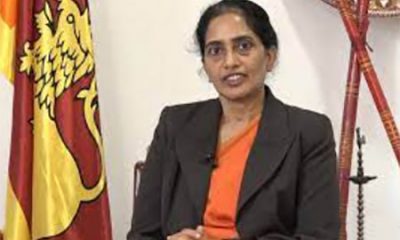News
The Philippines looks askance at evidence gathering mechanism

UNHRC report on Sri Lanka
The Philippines has questioned the allocation of as much as USD 10 mn for Geneva-based evidence gathering mechanism to inquire into accountability issues in Sri Lanka.
During the ongoing 54th Session of the Human Rights Council that commenced on 11th September, 2023, the Philippines government raised the issue.
Making a strong statement on the accountability mechanism run by the OHCHR (Office if the High Commissioner for Human Rights), the Philippines called it ‘an expensive mandate worth 10 million US dollars with an open-ended work time-frame’, that ‘runs parallel to and is divorced from functioning domestic processes.
Cuba pointed out that punitive mechanisms only gave rise to politicisation and proliferation of double standards and did not contribute in any way to the promotion and protection of human rights. Pakistan expressed concerns over the imposition of external accountability measures inconsistent with the provisions of the UN charter and UNGA Resolution 60/251.
China extended support to Sri Lanka on safeguarding national sovereignty, independence, social stability and promoting economic development and stated that Resolution 51/1 does not follow the principles of fairness and objectivity and non-selectivity and it did not have the approval of the country concerned.
Sri Lanka’s Permanent Representative to HRC in Geneva Ambassador Himalee Arunatilaka has reiterated Sri Lanka’s rejection of Resolution 46/1 and 51/1 that led to the setting up of the so-called ‘Accountability Project’. Ambassador Arunatilaka also rejected the latest written update, its conclusions and recommendations.
The latest written update, titled ‘Situation of Human Rights in Sri Lanka,’ was presented by Deputy High Commissioner for Human Rights Nada al-Nashif.
Pointing out that Resolutions 46/1 and 51/1 had been adopted by a divided vote in the Council where the majority of the Member States either opposed or abstained from voting, due to fundamental disagreement with its unacceptable content, in particular the setting up of evidence gathering mechanism, Ambassador Arunatilaka said pointing out that the move was unprecedented.
Career diplomat Arunatilaka succeeded C.A. Chandraprema in the wake of the change of government in July last year.
While raising concerns regarding the content of the written update which does not reflect the actual ground situation in Sri Lanka, the PR stated that the economic, social and financial stabilization achieved in the past year has been appreciated and acknowledged, domestically and externally, by those who have expertise.
The Sri Lankan envoy regretted that the OHCHR has also chosen to ignore the democratic resilience of the country in the past year and strongly objected to the written update that dealt with policy matters that were essentially domestic for any sovereign country and outside the framework of the Council. She declared OHCHR’s approach unhelpful.
The Wickremesinghe-Rajapaksa government also rejected all conclusions and recommendations including references to targeted sanctions based on incorrect and unsubstantiated sources contravening the principles of natural justice and the principles of universality, impartiality, objectivity and non-selectivity.
Ambassador Arunatilaka reaffirmed that Sri Lanka will continue to engage constructively with other mechanisms of the Council, in keeping with our close engagement with the international community and the Council in other areas of its work.
News
Bribery chief says don’t abuse the term ‘political victimization”
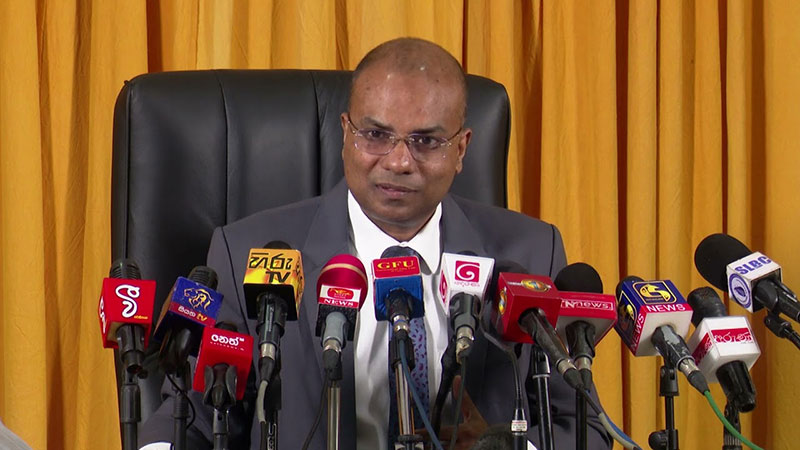
Director General of the Commission to Investigate Allegations of Bribery or Corruption, Ranga Dissanayake, says that the abuse of the term “political victimization” will no longer be tolerated, and those who misuse the term will face strict legal action.
Dissanayake told a media conference held at the CIABOC auditorium: “There is a widespread perception that the law is not effectively enforced in this country. This perception has arisen because, as the President said on Anti-Corruption Day, small fish are caught while the big fish escape. This perception exists for several reasons, including delays in the Bribery or Corruption Investigation Commission’s processes. At times, the public is unaware of the injustices that occur within the Commission.”
Addressing politicians who make public statements, he requested, “I sincerely ask political leaders who issue statements to the media to kindly refer to the Anti-Corruption Act No. 9 of 2023 that you have endorsed. Please refrain from making certain statements without a proper understanding. This law has been enacted independently of any prior connections or influences. I have been in this position since the beginning of this year. The Bribery Commission currently has 31 legal officers, and there is no capacity to recruit additional staff at this time.”
He also highlighted the significant challenges faced by the Commission, revealing that approximately 4,000 unresolved case files remain due to limited resources and personnel. “No matter what we do, people will still ask, ‘How many criminals have been caught?’ This situation is the result of limited resources and staff,” he said.
Dissanayake also said: “If anyone is going to claim political victimization, let them find evidence and prove it. Otherwise, the powers granted by this law will be used against those who make false claims.”
By Pradeep Prasanna Samarakoon
News
SC dismisses 50 petitions, orders enforcing CA ruling on 37 others
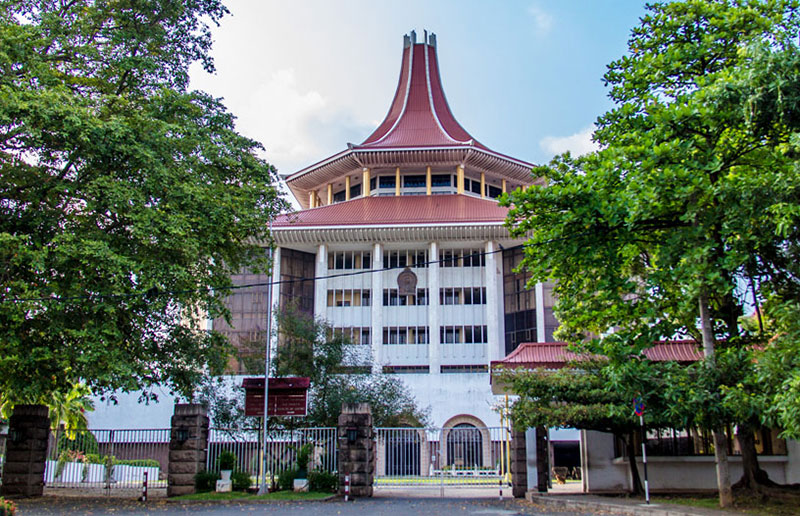
Rejection of LG nominations
The Supreme Court on Friday dismissed over 50 petitions challenging the rejection of nomination papers for the upcoming 2025 Local Government Elections.
A total of 53 writ applications and six Fundamental Rights (FR) petitions, filed by political parties and independent groups, were dismissed.
This ruling follows a recent decision by the Court of Appeal, which had ordered the acceptance of 37 nominations that were initially rejected. In a significant move, the Supreme Court Friday instructed the relevant returning officers to accept the previously rejected nominations, aligning with the Court of Appeal’s verdict.
The petitions had been filed by recognized political parties and independent groups who challenged the rejection of their nominations. The reasons for the rejection included issues such as failure to submit certified copies of birth certificates of candidates, failure to submit an official oath, and submitting only photocopies of birth certificates instead of the required certified versions.
By AJA Abeynayake
News
A Year of Growth for Singer Sri Lanka Toastmasters Club
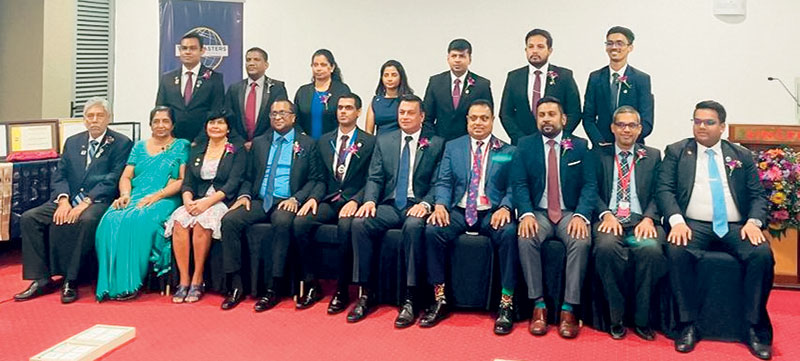
Celebrating a Century of Soft Skills Development with Toastmasters International
The beginning of a new Toastmasters year is always an exciting occasion for clubs worldwide, and this year, the celebration is even more special as Toastmasters International marks its 100th year of developing soft skills in public speaking, effective communication, and leadership.
At the onset of the Toastmasters year on 1st July 2024, with the vision “United Roots, Shared Bloom,” the gavel was passed to TM Chanuka Obeysekera, the 14th President of Singer Sri Lanka Toastmasters Club. This marks another chapter in the club’s commitment to fostering personal development and growth in its members. On 19th September 2024, the club saw a momentous occasion with the installation of new Club Officers and the induction of nine new members.
TM Udani Mendis, a new member of the club, shared her experience: “Toastmasters has transformed my journey into one of self-discovery and empowerment. Each meeting pushes me to overcome my fears and celebrate my progress as a communicator. Through this experience, I’ve grown into a confident leader, ready to inspire others.”
The club provides a safe space where members offer constructive, positive feedback, empowering each other to develop without fear of judgment. The focus is not on perfection, but on constant growth, with each member taking steps towards realizing their potential. The learning experience at the club goes far beyond just delivering speeches. While public speaking is a key focus, the networking opportunities and personal connections made are an integral part of the club’s value. This year, members of the club have also taken up leadership roles within District 82 and Division C. TM Rosanne Ranasinghe was appointed as Division Director, TM Rolinka Perera as Toastmaster Learning Chair of Division C, and TM Viraj Chathuranga as Finance Manager of Division C.
The energy, enthusiasm, and camaraderie shared among members is palpable. The collective commitment to creativity and excellence continues to push the boundaries of what a standard club meeting can achieve. Toastmasters is about both individual achievement and the shared growth of all members, creating a community where bonds are built, experiences are exchanged, and each person is empowered to achieve their full potential.
The club remains committed to its mission – not just to learn, but to teach, inspire, and help others realize their dreams.
-

 Business2 days ago
Business2 days agoStrengthening SDG integration into provincial planning and development process
-

 News6 days ago
News6 days agoBid to include genocide allegation against Sri Lanka in Canada’s school curriculum thwarted
-

 Business1 day ago
Business1 day agoNew SL Sovereign Bonds win foreign investor confidence
-

 Sports3 days ago
Sports3 days agoTo play or not to play is Richmond’s decision
-

 Business1 day ago
Business1 day agoDaraz Sri Lanka ushers in the New Year with 4.4 Avurudu Wasi Pro Max – Sri Lanka’s biggest online Avurudu sale
-

 Latest News5 days ago
Latest News5 days agoIPL 2025: Rookies Ashwani and Rickelton lead Mumbai Indians to first win
-
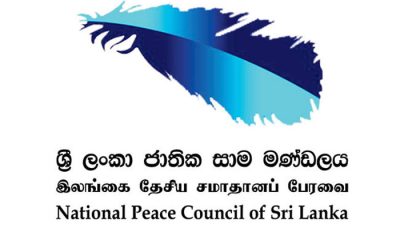
 News6 days ago
News6 days agoSL needs a comprehensive solution, not selective justice: NPC
-
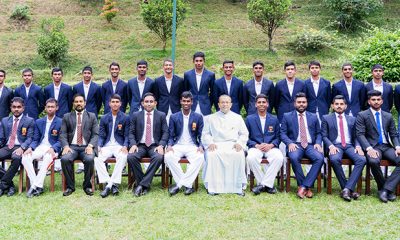
 Sports4 days ago
Sports4 days agoTrinity, St. Anthony’s out to end decade long victory drought


